
Literacy Research and Instruction
Scope & Guideline
Exploring the forefront of literacy education.
Introduction
Aims and Scopes
- Literacy Instruction and Pedagogy:
The journal emphasizes effective literacy instruction methodologies, exploring innovative teaching practices and their impact on student learning outcomes. - Diversity and Multimodality in Literacy:
A core area of focus is the inclusion of diverse perspectives in literacy, particularly through the use of multimodal texts that cater to varied learning styles and cultural backgrounds. - Assessment and Evaluation in Literacy Education:
The journal includes studies on assessing literacy skills, understanding instructional strategies, and evaluating the effectiveness of literacy interventions. - Teacher Preparation and Professional Development:
A significant aspect of the journal's scope is dedicated to the preparation of literacy educators, examining how teacher training influences literacy instruction and student engagement. - Cultural and Linguistic Responsiveness:
The journal aims to highlight the importance of culturally sustaining practices in literacy education, ensuring that all learners' backgrounds are valued and integrated into instruction.
Trending and Emerging
- Culturally Sustaining Pedagogies:
There is a growing emphasis on culturally sustaining approaches that recognize and incorporate students' diverse backgrounds into literacy instruction, promoting equity and inclusion. - Digital Literacies and Technology Integration:
As technology becomes increasingly integral to education, research focusing on digital literacies and the use of technology in literacy instruction is on the rise, reflecting the need to prepare students for a digital world. - Social and Emotional Aspects of Literacy Learning:
Emerging research highlights the importance of emotional engagement and motivation in literacy, exploring how these factors influence reading achievement and student identity. - Multimodal Literacies:
The exploration of multimodal literacies, which combine various forms of communication (text, visuals, audio), is gaining traction, indicating a shift towards more holistic literacy practices that engage students in diverse ways. - Teacher Agency and Professional Development:
Recent studies emphasize the role of teacher agency in literacy instruction, focusing on how professional development can empower educators to adapt and innovate their teaching practices.
Declining or Waning
- Traditional Phonics Instruction:
While foundational literacy skills remain important, there has been a noticeable decrease in the focus on traditional phonics instruction as new methods and holistic approaches gain traction. - Standardized Literacy Assessments:
The emphasis on standardized testing in literacy has waned, with more research leaning towards formative assessments and alternative evaluation methods that consider individual learner needs. - Generalized Literacy Strategies:
There is a decline in publications centered around generic literacy strategies, as the field shifts towards more context-specific and culturally responsive approaches to literacy instruction.
Similar Journals
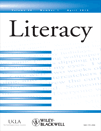
Literacy
Championing Critical Insights in Literacy and LinguisticsLiteracy is a premier academic journal published by Wiley, focusing on critical advancements and research in the fields of education and linguistics. With an impressive impact factor reflected in its Q2 ranking in Education and Q1 in Linguistics and Language, this journal serves as a vital platform for researchers, educators, and students seeking to explore contemporary issues surrounding literacy in diverse contexts. Since its inception in 2005, Literacy has made significant contributions to understanding the evolving nature of literacy practices, promoting dialogue on innovative pedagogies and the sociocultural implications of language use. While it is not an Open Access journal, its accessibility through institutional subscriptions ensures that its valuable insights reach a broad audience. With its robust Scopus rankings, including an 88th percentile in Language and Linguistics and 63rd in Education, Literacy remains an indispensable resource for those committed to advancing literacy education and research.

RESEARCH IN THE TEACHING OF ENGLISH
Exploring New Frontiers in Language EducationResearch in the Teaching of English is a premier academic journal published by the National Council of Teachers of English, dedicated to advancing the methodologies and practices in the field of English language education. With a robust ISSN of 0034-527X and e-ISSN of 1943-2348, the journal has carved a niche for itself by consistently presenting cutting-edge research that informs and enhances teaching efficacy in diverse educational contexts. Spanning publication periods from 1996 to 2001 and from 2004 to 2024, it serves as a pivotal resource for educators and researchers. Recognized for its impact, the journal currently holds a Q2 classification in Education and a Q1 in Linguistics and Language, reflecting its significance in academic discourse. With commendable Scopus rankings within the top percentiles in both Arts and Humanities and Social Sciences, it remains an essential platform for scholarly discussion aimed at improving English language teaching methodologies. Join a community of professionals devoted to enriching language education through innovative research contributions.
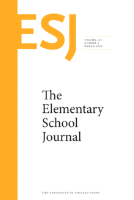
ELEMENTARY SCHOOL JOURNAL
Exploring Innovations in Elementary EducationElementary School Journal, published by University of Chicago Press, is a leading academic journal focused on the field of education. With an ISSN of 0013-5984 and an E-ISSN of 1554-8279, this esteemed publication ranks in the top quartile (Q1) of educational journals, reflecting its influential role in shaping educational research and practice. Covering diverse topics integral to elementary education, the journal provides a platform for innovative research and discussions that aim to enhance teaching and learning experiences in the early years of schooling. With a Scopus ranking of #628 out of 1543 in the Social Sciences and Education category, the journal is positioned as a pivotal resource for researchers, educators, and policy-makers committed to advancing knowledge in this critical area. Although not an open-access publication, the journal offers valuable insights backed by rigorous scholarship, making it a vital part of academic collections across the globe. We invite scholars and practitioners alike to contribute to and benefit from the rich body of work published in this journal, which has been operational from 1996 and will continue its impactful journey through 2024.
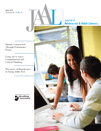
JOURNAL OF ADOLESCENT & ADULT LITERACY
Cultivating Knowledge for Lifelong Literacy SuccessJOURNAL OF ADOLESCENT & ADULT LITERACY is a prestigious publication dedicated to the exploration and enhancement of literacy education for adolescents and adults. Published by Wiley, this journal holds an important position in the educational research landscape, marked by its Q2 ranking in Education for 2023, reflecting its commitment to high-quality scholarship. With an ISSN of 1081-3004 and an E-ISSN of 1936-2706, this journal serves as an essential resource for educators, researchers, and policy-makers in understanding literacy development, instructional practices, and the sociocultural factors influencing literacy. Covering a comprehensive timeline from 1995 to 2024, the journal is well-known for its rigorous peer-reviewed articles, providing insights into innovative practices and empirical research that support literacy advancement. Located in the United States, with its headquarters at 111 RIVER ST, HOBOKEN 07030-5774, NJ, the journal does not offer open access but remains an invaluable asset for stakeholders in the realm of education, encouraging discourse and collaboration to foster literacy in diverse and dynamic contexts.

Innovacion Educativa
Empowering Educators with Groundbreaking InsightsInnovacion Educativa, published by the prestigious Universidad de Santiago de Compostela, is a prominent journal dedicated to exploring innovative approaches and practices in the field of education. With an ISSN of 1130-8656 and an E-ISSN of 2340-0056, this journal aims to provide a platform for researchers, educators, and practitioners to disseminate groundbreaking research and insights that enhance educational methods and policies. Although it operates within a traditional access framework, the journal is committed to fostering open dialogue and collaboration among the educational community. With an emphasis on evidence-based practices and contemporary educational challenges, Innovacion Educativa plays a crucial role in shaping the future of education by highlighting innovative methodologies and promoting impactful research that addresses the needs of diverse learners. Its contributions are particularly relevant in today’s rapidly changing educational landscape, making it an essential resource for stakeholders aiming to improve educational outcomes.

Language Learning in Higher Education
Transforming higher education through effective language learning.Language Learning in Higher Education is a prominent academic journal published by DE GRUYTER MOUTON, dedicated to exploring the intricate dynamics of language acquisition and pedagogical practices within the higher education context. With a robust ISSN: 2191-611X and E-ISSN: 2191-6128, this journal provides a platform for innovative research that addresses contemporary challenges and methodologies in language education. The journal enjoys a favorable reputation in the academic community, as evidenced by its ranks in the Scopus database, where it holds a position in the 67th percentile for Language and Linguistics and is classified in the Q3 and Q2 quartiles across relevant education and linguistics categories. Since its convergence in 2017, Language Learning in Higher Education aims to enrich scholarly discourse by publishing high-quality articles that foster insights into effective language learning strategies, thus serving as an essential resource for researchers, educators, and students committed to enhancing language education. The journal's editorial team is devoted to advancing the field through rigorous peer-review processes and welcomes contributions that push the boundaries of language learning research.
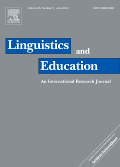
Linguistics and Education
Innovating Pedagogy with Linguistic ResearchLinguistics and Education, published by Elsevier, is a premier journal dedicated to advancing the understanding of the intersections between linguistics and educational practices. With its ISSN 0898-5898 and E-ISSN 1873-1864, this journal has established itself as a significant platform since its inception in 1988, continuing to produce impactful research up to 2024. It enjoys a prestigious Q1 ranking in both the Education and Linguistics and Language categories, reflecting its high-quality contributions and leading role in the field. The journal’s Scopus rankings further underscore its influence, being placed in the 87th percentile for Arts and Humanities in Language and Linguistics, and the 86th percentile in Social Sciences in Linguistics and Language. Although it operates under traditional subscription access, its contributions are essential for researchers, professionals, and students alike, making substantial strides in the understanding of language, learning environments, and pedagogical strategies. The journal's objective is to foster interdisciplinary dialogue and disseminate innovative research that informs educational policy and practice.
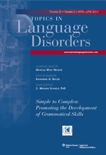
TOPICS IN LANGUAGE DISORDERS
Innovating practices in linguistics and communication sciences.TOPICS IN LANGUAGE DISORDERS is a premier academic journal published by LIPPINCOTT WILLIAMS & WILKINS that has been at the forefront of research in linguistics and communication sciences since 1980. Issued in both print (ISSN: 0271-8294) and electronic formats (E-ISSN: 1550-3259), this journal caters to an audience of researchers, clinicians, and students dedicated to understanding and addressing language disorders. With a notable impact factor and categorized in Q1 for Linguistics and Language and Q2 for Speech and Hearing in 2023, it occupies a vital niche in the scholarly discourse around language pathology, presenting rigorously peer-reviewed articles that advance knowledge and practice in the field. Although it is not an open access journal, subscribers benefit from in-depth studies, comprehensive reviews, and case analyses that drive innovation and inform evidence-based interventions. The journal aims to bridge theoretical insights and practical applications, making it an essential resource for professionals seeking to enhance their understanding of communication disorders and develop effective treatment strategies. Positioned in Philadelphia, PA, the journal continues to influence the landscape of language research, maintaining a critical role in nurturing the academic pursuit of excellence in language disorder studies.
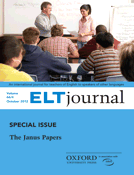
ELT Journal
Bridging Theory and Practice in ELTELT Journal, published by Oxford University Press, is a premier academic journal dedicated to the fields of Educational Psychology, Linguistics, and Language, boasting an esteemed Q1 category ranking across these disciplines. Since its inception in 1946, the journal has served as a vital platform for researchers and educators, offering insights into English Language Teaching (ELT) and the evolving pedagogical practices that influence language acquisition and literacy development. With an impressive Scopus ranking placing it in the 95th percentile within the Arts and Humanities (Linguistics and Language), ELT Journal not only contributes to academic discourse but also bridges theoretical frameworks with practical applications in educational settings. Although it does not currently offer Open Access, the journal remains essential for professionals and students alike, eager to stay abreast of the latest research trends and innovations in the global ELT landscape. For those committed to advancing their understanding of language education, the journal's diverse range of articles and case studies provide invaluable resources.
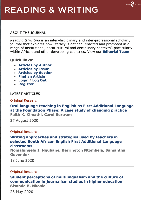
Reading & Writing-Journal of the Reading Association of South Africa
Transforming Literacy Practices for a Brighter FutureReading & Writing - Journal of the Reading Association of South Africa is a distinguished open access journal published by AOSIS, focusing on pivotal research within the fields of education and linguistics. Established to promote literacy and reading initiatives, this journal serves as an invaluable platform for scholars and educators aiming to enhance literacy practices in the South African context and beyond. With an ISSN of 2079-8245 and e-ISSN 2308-1422, it enables a wide reach since its initiation as an open access publication in 2010, breaking barriers for the dissemination of knowledge. Its notable Q2 placement in Linguistics and Language and Q3 in Education underscores its relevance and rigor, reflecting a high standard in scholarship as per the 2023 metrics. Further, it holds commendable Scopus rankings across several categories, including a 75th percentile in Language and Linguistics, indicating its strong standing within the academic community. This journal not only allows for unrestricted access to cutting-edge research but also encourages collaboration and dialogue among researchers, educators, and practitioners, ultimately aiming to foster a deeper understanding of literacy development in diverse educational settings.